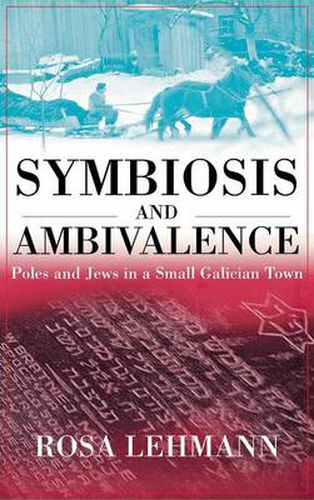Readings Newsletter
Become a Readings Member to make your shopping experience even easier.
Sign in or sign up for free!
You’re not far away from qualifying for FREE standard shipping within Australia
You’ve qualified for FREE standard shipping within Australia
The cart is loading…






This title is printed to order. This book may have been self-published. If so, we cannot guarantee the quality of the content. In the main most books will have gone through the editing process however some may not. We therefore suggest that you be aware of this before ordering this book. If in doubt check either the author or publisher’s details as we are unable to accept any returns unless they are faulty. Please contact us if you have any questions.
In Poland and elsewhere there has been a noticeable increase of interest in various aspects of the Polish-Jewish past which can be explained, the author argues, in terms of a broader intellectual need to explore the blank spots of Poland’s national history. This quest begins and ends with Polish anti-Semitism and the Shoah, during which most of Europe’s Jews were annihilated on Polish soil, but also focuses on the events of 1946-1968, the years of pogroms, anti-Semitic campaigns, and mass emigration of the Jews from Poland. All these became main issues of public reflection in Poland after a silence for almost forty years and led to the widespread view that Polish-Jewish relations are irredeemably poisoned by anti-Semitism.
If this is the case, how is it possible then, the author asks, that Jews still play an important role in the cultural expressions and the consciousness of the Polish people? To find an answer, she explored Polish-Jewish relations in a small Galacian town from the early 19th century to the end of World War II. Detailed analysis of archival materials as well as interviews with Polish inhabitants of this town and Jewish survivors living elsewhere reveal a pattern of Polish-Jewish interdependence that has led to a far more complex picture than is generally assumed.
$9.00 standard shipping within Australia
FREE standard shipping within Australia for orders over $100.00
Express & International shipping calculated at checkout
This title is printed to order. This book may have been self-published. If so, we cannot guarantee the quality of the content. In the main most books will have gone through the editing process however some may not. We therefore suggest that you be aware of this before ordering this book. If in doubt check either the author or publisher’s details as we are unable to accept any returns unless they are faulty. Please contact us if you have any questions.
In Poland and elsewhere there has been a noticeable increase of interest in various aspects of the Polish-Jewish past which can be explained, the author argues, in terms of a broader intellectual need to explore the blank spots of Poland’s national history. This quest begins and ends with Polish anti-Semitism and the Shoah, during which most of Europe’s Jews were annihilated on Polish soil, but also focuses on the events of 1946-1968, the years of pogroms, anti-Semitic campaigns, and mass emigration of the Jews from Poland. All these became main issues of public reflection in Poland after a silence for almost forty years and led to the widespread view that Polish-Jewish relations are irredeemably poisoned by anti-Semitism.
If this is the case, how is it possible then, the author asks, that Jews still play an important role in the cultural expressions and the consciousness of the Polish people? To find an answer, she explored Polish-Jewish relations in a small Galacian town from the early 19th century to the end of World War II. Detailed analysis of archival materials as well as interviews with Polish inhabitants of this town and Jewish survivors living elsewhere reveal a pattern of Polish-Jewish interdependence that has led to a far more complex picture than is generally assumed.